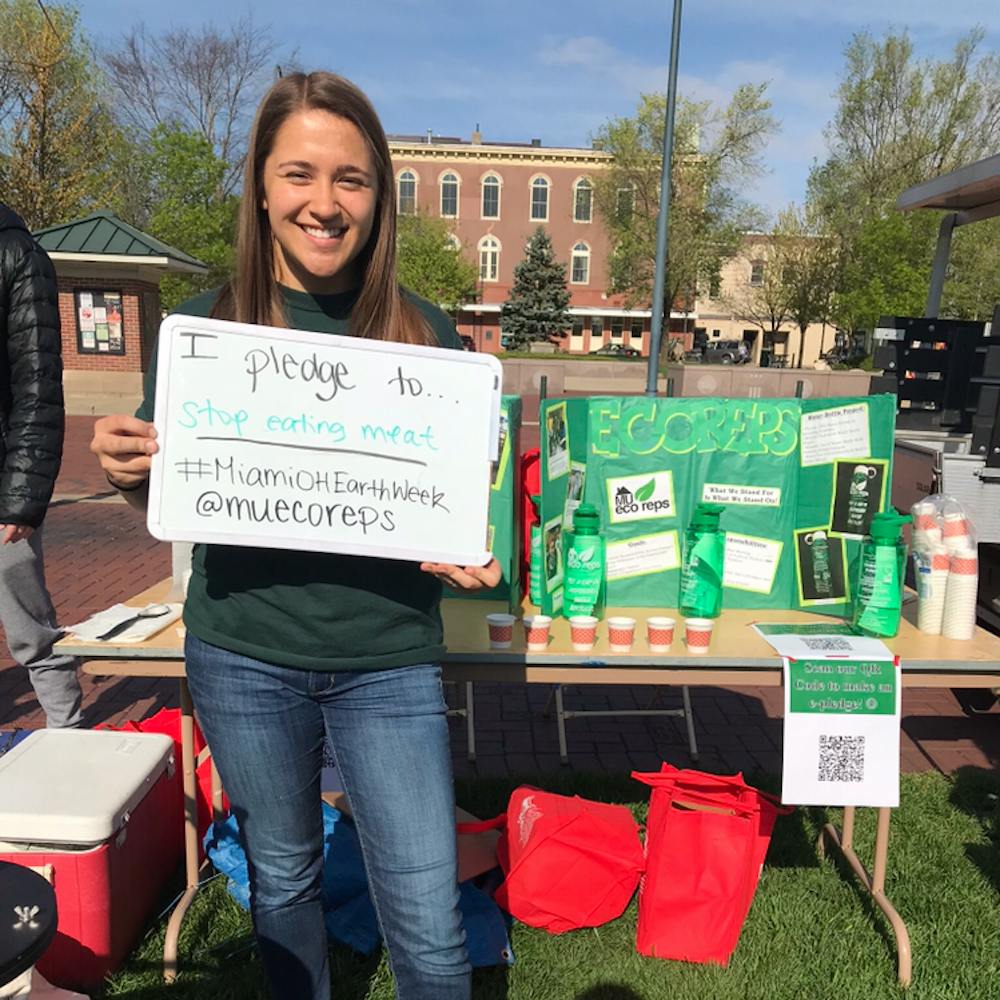By: Blair Hassett
GreenHawks Media continues to highlight some more of Miami’s own students with its ongoing Students in Sustainability series, allowing students to share their intellectual and co-curricular pursuits. For this installment, Blair Hassett Media interviewed EcoReps President Allison South about her involvement at Miami and career goals. Introduce yourself w/name, major, year, and activities on campus.My name is Allison South, and I am a junior Political Science Major with Sustainability and Energy Co-Majors. I’m also part of the combined Master of Environmental Science program, where I will be graduating next year with both undergraduate and graduate degrees. On campus, I am the President of EcoReps (@muecoreps) and Project Kids Network (@projectkidsnetwork_mu). I am also the Secretary of the Student Sustainability Council, the Sustainability Team Leader on the Honors Student Advisory Board, a member of National Residence Hall Honorary, Best Buddies, and part of three intramural teams (soccer, hockey, and broomball). When did your interest in sustainability begin? What prompted it?I have always been interested in sustainability. When I was in middle school, I created a “Team Recycle” costume for Halloween, where I sewed recyclable items onto my shirt. I think my home life prompted my interest, as my grandpa always taught my family about wildlife, which I associate with conservation. My parents have supported my sustainable tendencies - it was really my mom who sewed on the recyclables! The pairing of the supportive and educational environment I grew up in with the obvious need for increased sustainability prompted my interest. Have your sustainable values prompted any significant lifestyle changes?March marks one year of me becoming a vegetarian to cut down on my personal footprint! Honestly, this change has not been that significant or difficult: more people should try it at least a few days a week. I also do the other simple things like using reusable water bottles, grocery bags, Tupperware and silverware. Can you tell us about your experience in the combined BA/MA program?The combined IES Master of Environmental Science program has been great! The advisors of the program were extremely helpful when I was trying to figure out how everything would fit together so that I could still graduate in four years. The core classes are useful, as they provide more lab experience, statistical analysis skills, and management of project work and teams. I would highly recommend the program to anyone interested in anything environmental science-related: I am concentrating in Energy and the Environment, but this program can be tailored to anyone’s interests, such as air or water pollution or waste management. Are you interested in pursuing a career related to environmental sustainability?I am very interested in pursuing a career related to sustainability; in particular, I’m interested in how it relates to policy. I also want to incorporate renewable energy into that equation as part of the United States’ sustainable transition. My thought is that local or state governments would have something that fits my interests, but I don’t have a specific position picked out because my interests are still extremely broad. I’m hoping my broad interests will make it easier, not harder, to find something after graduation. What advice do you have for someone who is interested in becoming sustainable but doesn’t know where to start?Just find something little! As I mentioned, reusable grocery bags, sandwich containers (instead of plastic bags), or water bottles (instead of plastic/disposable ones), are simple sustainable choices. Trying Meatless Mondays is another great start to reducing your footprint. As students, it can be hard to make significant changes: we all don’t have cars, so we can’t choose to buy electric, we don’t have as much consumer choice, dining hall options are what they are, Miami’s recycling and composting habits (or lack thereof) can seem out of our control, and having your own reusable cup/dishware does not always mean it’ll be used across campus. Did you know that Starbucks will take your reusable cups, but campus markets and cafes charge $1 for an approval sticker that only applies to some drinks? However, most of us are already doing small things, like walking to class instead of driving, taking the bus to Kroger instead of Ubering, or watching how much we put on our plates in the dining hall so we aren’t wasting food. Choosing to make a few more little changes can make a big difference if we all do them. My other suggestion would be to look at all of the sustainability organizations we have on campus and see if there are any you’d like to join to help motivate and educate you in your sustainable transition. Beyond these tips, just read the news and be informed on policies and politicians so that you can better understand what is going on in the world around us pertaining to sustainability. Then, you can use your democratic power to elect officials who care about environmental conservation and hold others accountable!
Photo courtesy of Allison South

